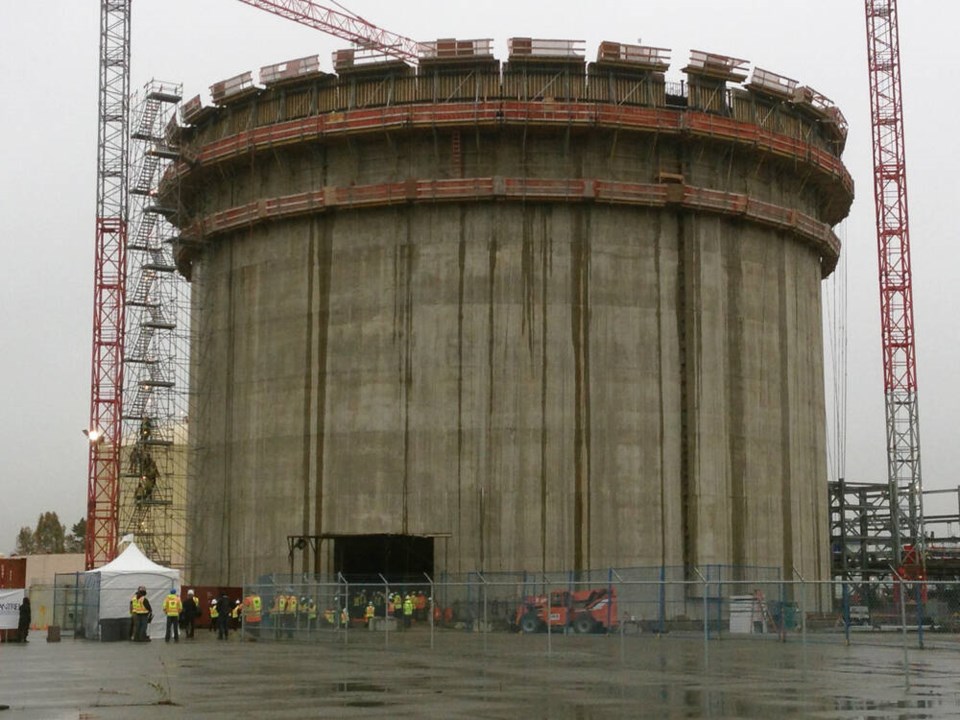FortisBC welcomes a new energy action framework for LNG development, including the planned expansion at the Tilbury plant in Delta.
That was the response from FortisBC regrading last week’s announcement from the province that a new energy action framework will ensure oil and gas sector projects fit within B.C.’s climate commitments and create new opportunities for people in clean energy and technology.
Among other things, the framework will require all proposed LNG facilities in or entering the environmental assessment (EA) process to pass an emissions test with a credible plan to be net zero by 2030.
The new framework builds on the recent approval of Cedar LNG, a Haisla Nation-led project, which will be one of the lowest-emitting facilities of its kind in the world, the province said.
In a statement to the Optimist, FortisBC said the Tilbury LNG facility has an important role to play in reducing customer greenhouse gas (GHG) emissions in B.C. and around the world.
“Our renewable hydro-powered facility helps make LNG from Tilbury among the lowest carbon intensity in Canada and the world. As a requirement of the current Environmental Assessment process, the Tilbury LNG Phase 2 Expansion must have a credible Net Zero Plan that demonstrates how the facility will achieve net zero GHG emissions by 2050,” said FortisBC.
Saying it welcomes the clarity the new framework provides for LNG development within the CleanBC plan, FortisBC added it looks forward to engaging with government on how the utility’s net-zero plan will align with the newly announced 2030 guidelines.
In response to the province’s announcement, the David Suzuki Foundation said requiring new LNG facilities to be net-zero by 2030 is a small step in the right direction, yet the science is clear that the world can’t afford continued expansion of fossil fuel infrastructure and that burning B.C. LNG makes climate change worse.
Winding its way through the application and assessment process, FortisBC Holdings Inc. (FortisBC) proposes to expand its LNG facility on Tilbury Island to increase the LNG storage capacity of the facility up to 142,400 cubic metres (3.5 petajoules). It’s a second phase of expansion, following an earlier expansion that had been approved and is now in operation.
Through the construction of a storage tank and supporting infrastructure and the addition of liquefaction trains, the latest expansion would increase the LNG production capacity of the facility by up to 7,700 tonnes per day.
FortisBC said a power line would connect a new substation at the Tilbury site with a BC Hydro substation in Ladner.
FortisBC said it working with the City of Delta and the Ministry of Transportation and Infrastructure on a route that minimizes potential impact to private land, and is planning to engage with the community.
Meanwhile, the separate application to build a facility adjacent to the FortisBC plant, the Tilbury Marine Jetty Project and Tilbury Jetty Limited Partnership, is a partnership between affiliates of FortisBC and Seaspan.
That proposed project would load LNG from the FortisBC facility onto ships for both local use and overseas export.
The marine jetty would provide berthing and loading facilities for up to 69 LNG carriers a year to serve offshore markets and up to 69 LNG bunker vessels to serve local and regional markets.
FortisBC also told the Optimist last week, “The Tilbury Jetty Limited Partnership is looking forward to an upcoming decision on the Tilbury Marine Jetty environmental assessment application. The TMJ will support the marine shipping industry as it transitions to lower carbon fuels. LNG is the only commercially available and scalable low carbon marine fuel alternative to marine diesel and fuel oil.”
The City of Delta is not taking a position on the proposals, waiting for the outcome of the environmental review process before deciding on a position.




